Russia Wins Fifth Gold Medal, Junior World Team Title
Sunday, September 23, 2018 - 18:16 By Eric Olanowski
TRNAVA, Slovakia (September 23) – Russia closed out the 2018 Junior World Championships winning the freestyle team title on the backs of five individual gold medals. Heading into the final day of wrestling, the Russian Federation led the second-place United States by 31 points and finished 67 points ahead of the returning champions.
Russia grabbed a trio of gold medals on the sixth day of competition and seized championships from Abasgadzhi MAGOMEDOV (RUS) and Soslan KHINCHAGOV (RUS) on the seventh day of wrestling at Trnava’s City Sports Hall.
Abasgadzhi Magomedov improved his 2015 cadet runner-up finish, ending the 61kg finals bout early, grabbing the 10-0 technical superiority victory over Georgia’s Ramaz TURMANIDZE.
The 2016 junior European champion technically and tactfully scored three takedowns via short drags, and two gut-wrenches, ending the gold-medal bout in 2:50.
Soslan KHINCHAGOV (RUS), who was competing in his first age-level world championship since claiming the silver medal at the 2015 Cadet World Championships, shutout Aly BARGHOUT (CAN), 7-0 in the 125kg finals, giving Russia their fifth and final gold medal of the tournament.
Overall, Russia capped off the 2018 Junior World Championships with seven medalists. In addition to their five gold medals, they also won a silver and bronze medal. Though they had seven medalists a year ago, there five gold medals are an improvement from last year’s four gold medals.
Meanwhile, in his third career freestyle tournament, Mekhi LEWIS (USA) sealed the team silver medal for the United States with a 5-1 win over Abubakr ABAKAROV (AZE) in the 74kg finals.
Lewis trailed 1-0 in the opening period, surrendering a passivity point before scoring a takedown and stepout, controlling a 3-1 lead into the final period. In the second period, Lewis scored a brutality point and a second stepout to give America their first champion across any division of the 2018 Junior World Championships.
In the 86kg gold-medal bout, Arif OZEN (TUR) stopped Deepak PUNIA (IND) from winning India’s first freestyle junior world gold medal since 2001.
The Turkish wrestler struck first, scoring an early takedown, which ended up being the match-deciding takedown. Ozen gave up a stepout as time expired, but won the match, 2-1, giving Turkey their first freestyle gold medal of these championships.
Abbas Ali FOROUTANRAMI (IRI) put on a takedown clinic in the 92kg championships bout, blanking Alisher YERGALI (KAZ), 11-0.
After three-minutes, Foroutanrami commanded the 3-0 lead before firing off four takedowns in the second period to end the match with the technical superiority victory.
RESULTS
Team Scores
GOLD – Russia (182 points)
SILVER – United States (115 points)
BRONZE – Iran (98 points)
Fourth – Azerbaijan (91 points)
Fifth – India (84 points)
61kg
GOLD – Abasgadzhi MAGOMEDOV (RUS) df. Ramaz TURMANIDZE (GEO), 10-0
BRONZE - Vazgen TEVANYAN (ARM) df. Abbos RAKHMONOV (UZB), 9 - 3
BRONZE - Syrbaz TALGAT (KAZ) df. Minsu CHO (KOR), 10-4
74kg
GOLD - Mekhi Kevin LEWIS (USA) df. Abubakr ABAKAROV (AZE), 5-1
BRONZE - Devid BETANOV (RUS) df. Sachin RATHI (IND), 11 - 1
BRONZE - Bat-Erdene BYAMBASUREN (MGL) df. Erik REINBOK (EST)
86kg
GOLD - Arif OZEN (TUR) df. Deepak PUNIA (IND), 2-1
BRONZE - Seyedabolfazl HASHEMIJOUYBARI (IRI) df. Demur MEGENEISHVILI (GEO), 6 - 5
BRONZE - Patrik SZUROVSZKI (HUN) df. Ivan NEDEALCO (MDA)
92kg
GOLD - Abbas Ali FOROUTANRAMI (IRI) df. Alisher YERGALI (KAZ), 11-0
BRONZE - Askhab HAMZATOV (AZE) df. Makhsud VEYSALOV (UZB), 9 - 3
BRONZE - Erhan YAYLACI (TUR) df. Khokh KHUGAEV (RUS), 7-3
125kg
GOLD - Soslan KHINCHAGOV (RUS) df. Aly Medhat Abde BARGHOUT (CAN), 7-0
BRONZE - Khasanboy RAKHIMOV (UZB) df. Amir Nader YARI (IRI), 6 - 4
BRONZE - Samhan JABRAILOV (MDA) df. Rahid HAMIDLI (AZE), 3-1

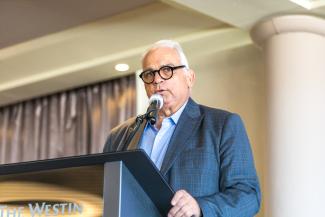
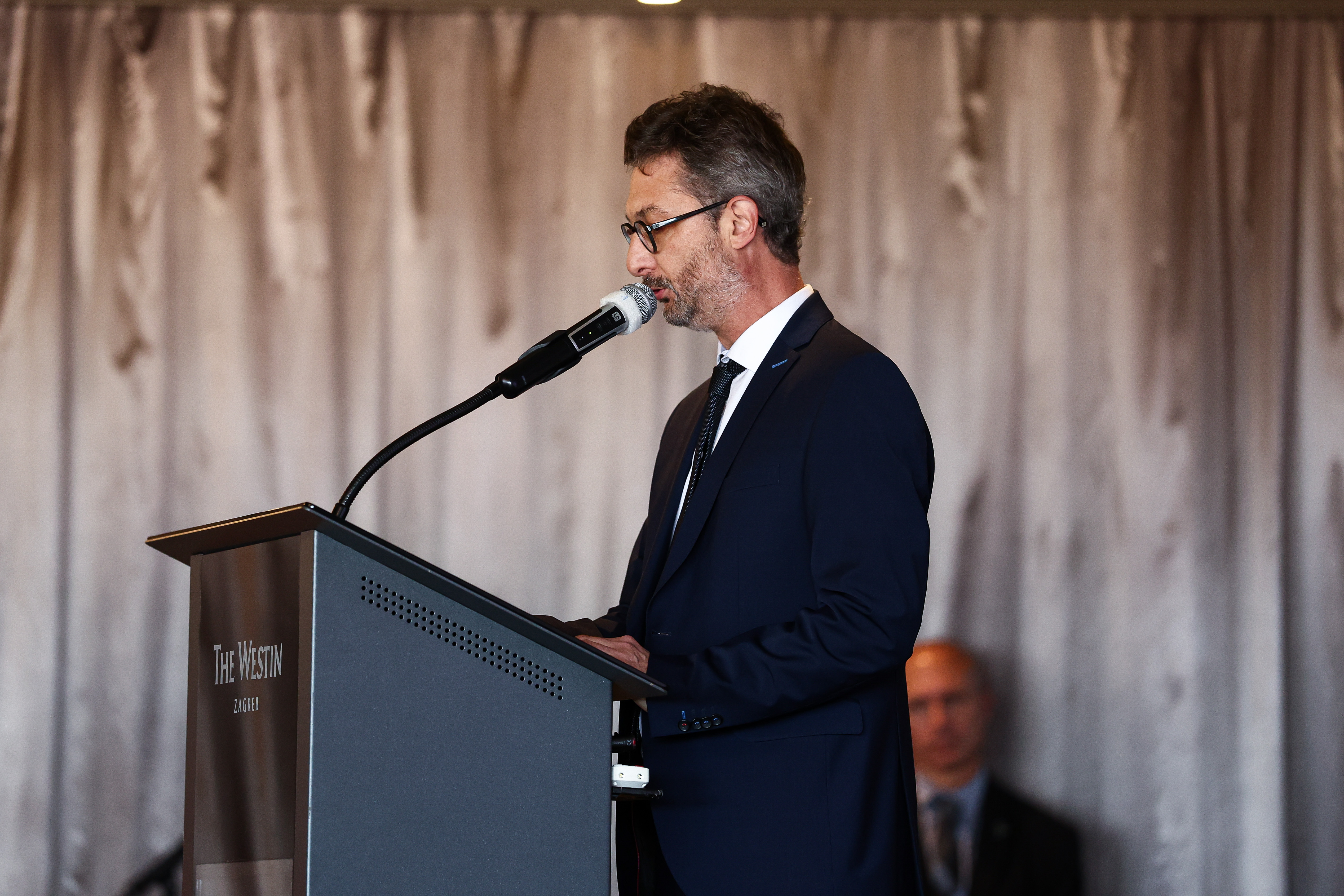 UWW Secretary General Carlos ROY welcomes the delegates to the World Conference. (Photo: United World Wrestling / Jake Kirkman)
UWW Secretary General Carlos ROY welcomes the delegates to the World Conference. (Photo: United World Wrestling / Jake Kirkman)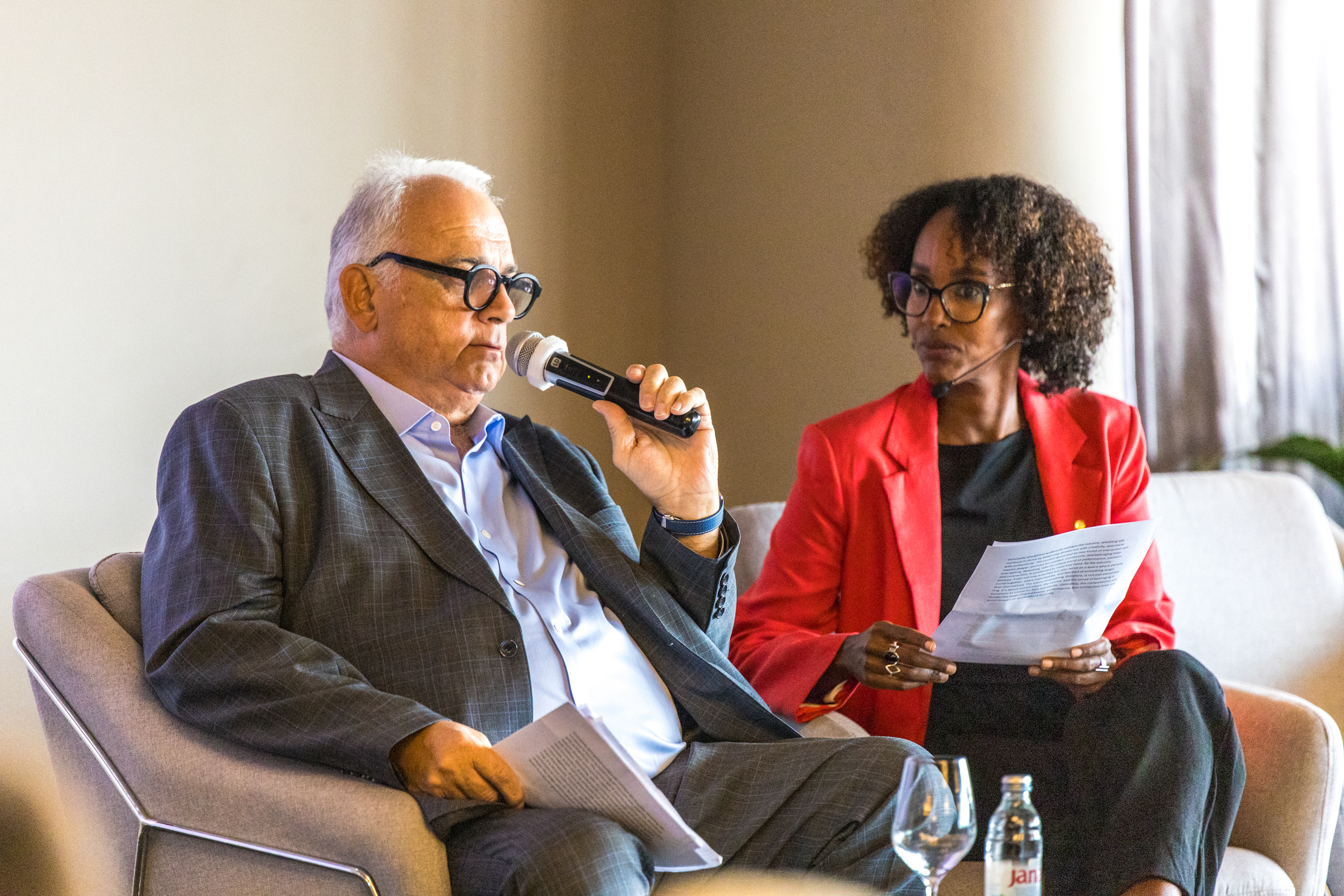 Nenad LALOVIC in a Q/A session with UWW Development Director Deqa NIAMKEY.
Nenad LALOVIC in a Q/A session with UWW Development Director Deqa NIAMKEY.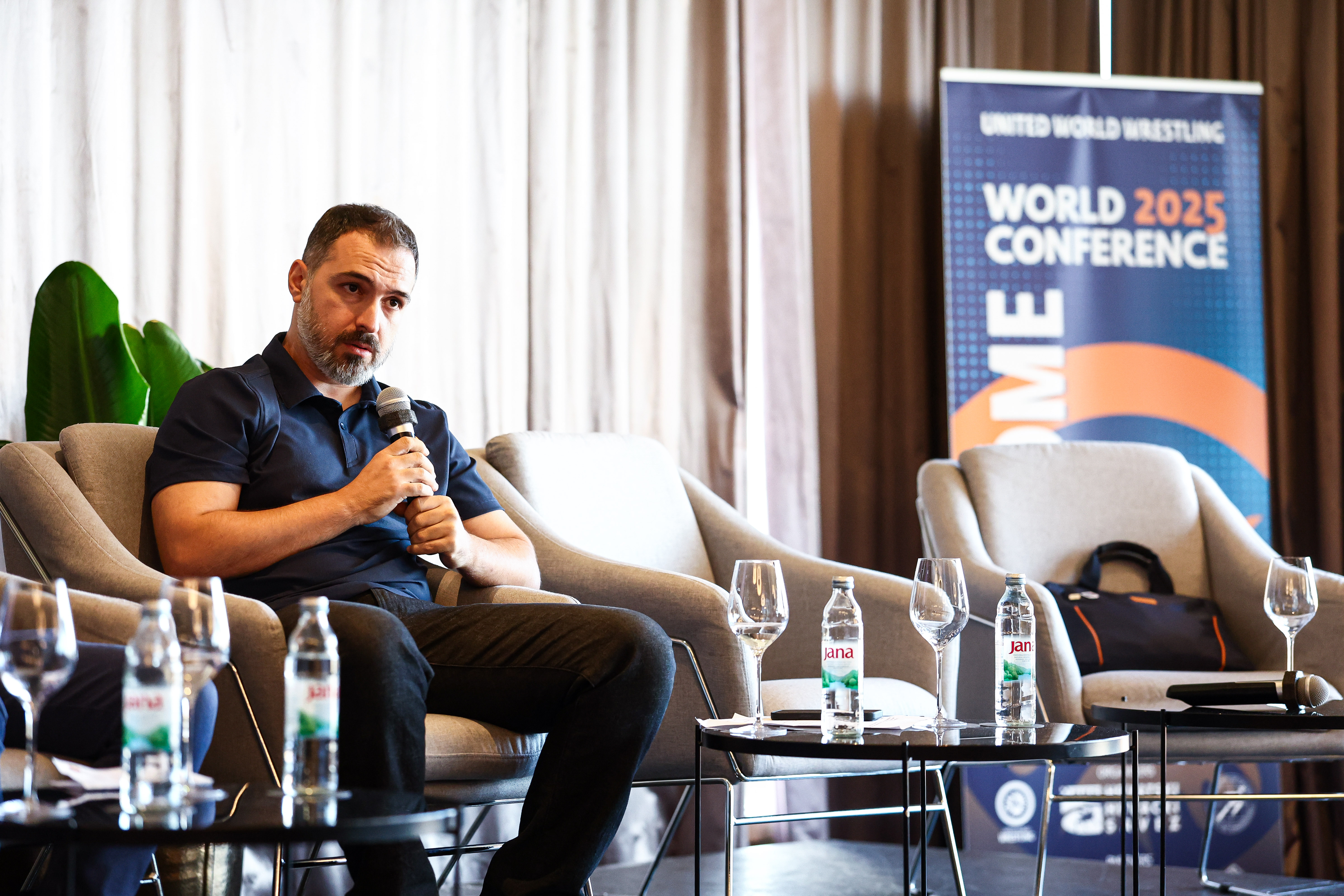 UWW Associated Styles Manager of UWW Onur SIMSEK.
UWW Associated Styles Manager of UWW Onur SIMSEK.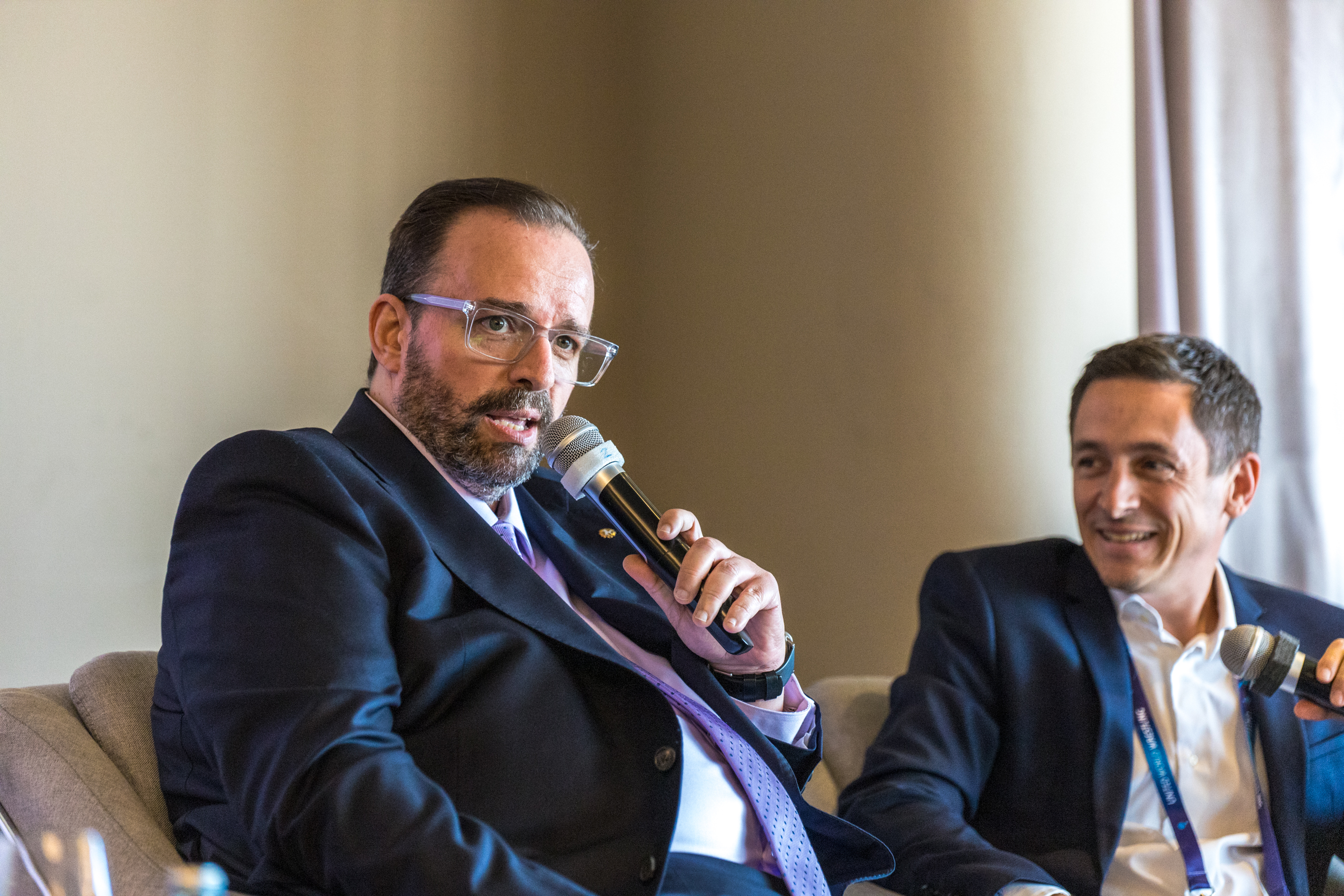 UWW Beach Wrestling Committee President Pedro SILVA.
UWW Beach Wrestling Committee President Pedro SILVA.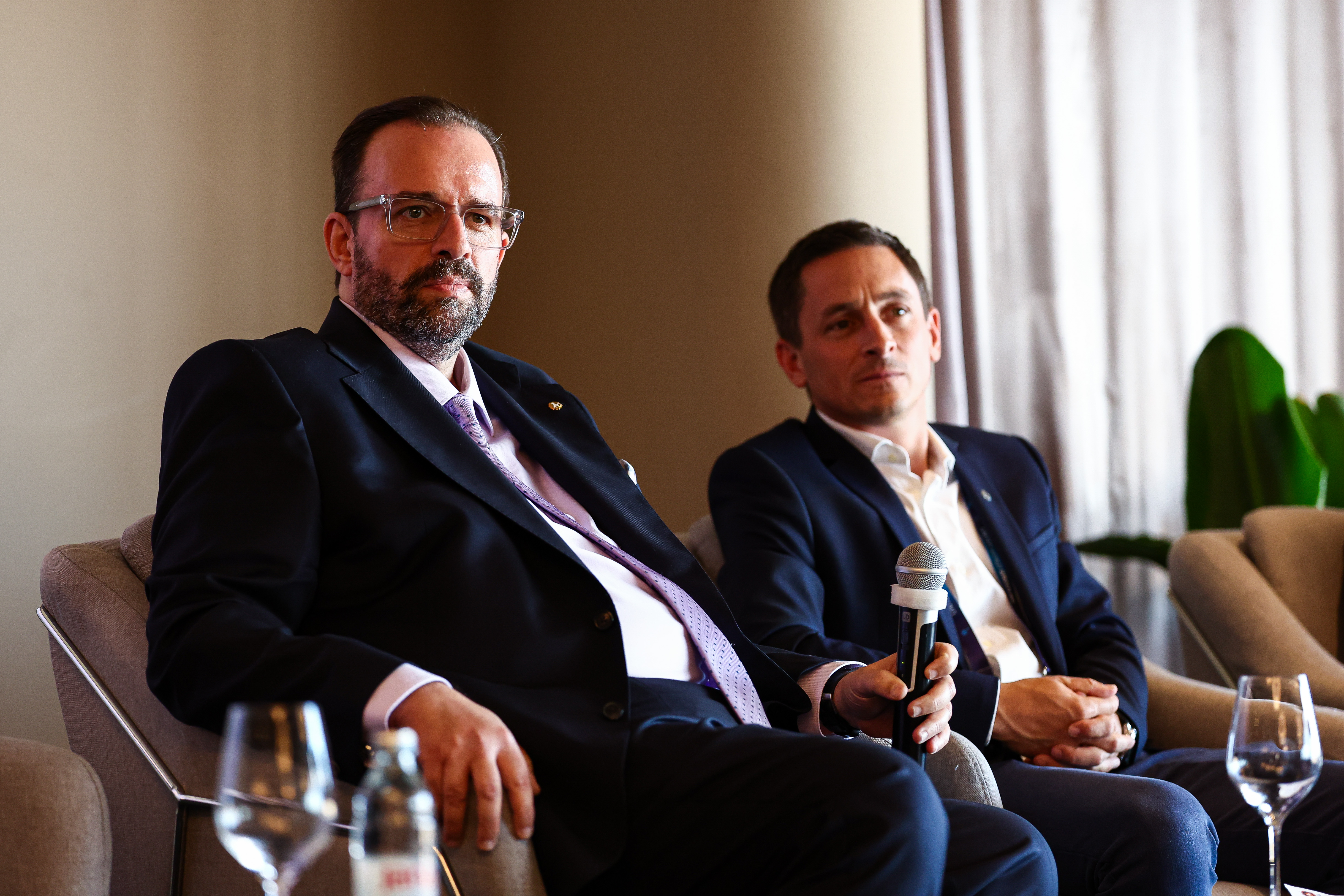 Pedro SILVA, left, and UWW Sports Director Jean-Daniel REY. (Photo: United World Wrestling / Jake Kirkman)
Pedro SILVA, left, and UWW Sports Director Jean-Daniel REY. (Photo: United World Wrestling / Jake Kirkman)
Share your thoughts.
Comments